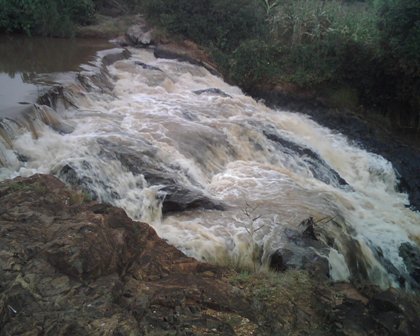As a young boy growing up in my village in South Nyanza, there was a swampy area close by to my home. I remember with nostalgia sometimes when I would pass by in the evenings with my siblings and friends. There would be sounds of frogs crocking loudly. We would imitate their sounds and even put words to them. We would compete among ourselves who was more accurate on what the frogs were saying. We would laugh. It was fun. On a close visit to the swamp, seeing tadpoles swimming and playing in their natural habitat was a spectacle. The area was also home to many other aquatic and semi-aquatic animal and plant species. There were turtles and many more different animals, insects and plants species. I don’t see most of them anywhere these days. Some of them were probably adapted to this ecosystem such that they could not survive anywhere else.
During dry seasons, the area was the only place where our animals would still get some pasture. And in rainy days, water in the stream down slope would be too cold for the animals to drink. We would instead take them to the swamp where they would enjoy the warm water. Even for us, the water from the stream or borehole would be too cold so we would rush back to the swamp after taking home the animals, and enjoy a clean warm bath.
This area also served as a rich source of medicinal herbs for my grandmother and other traditional doctors. I remember how she would describe for me specific spots in the area where I would get her herbs, and how I was suppose to carry them discretely. Exposing them would result in other people knowing the herbs and stealing her trade.
Looking at the area today, the swamp is no more. The area is now homes and farmland. There are no tadpoles. The animals are forced to forego water when they can’t drink the stream’s cold water. The children don’t have the luxury of the swamp’s warm bath. My grandmother no longer practices herbal treatment due to old age; neither did any of her children or grandchildren take after her. Most of the herbs would not be there anyway even if she or any of us were to continue in this vocation.
It is not my intention to go into the details of the swamp’s other ecosystem services to the community. None the less, I know my story is repeated in many other wetlands across Kenya and Africa. Wetlands are being lost and with them, biodiversity, critical habitats and wetlands ecosystem functions such as flood control, nutrient recycling and retention, maintenance of water table etc.
Let us conserve wetlands – for ourselves and for the future generations.
